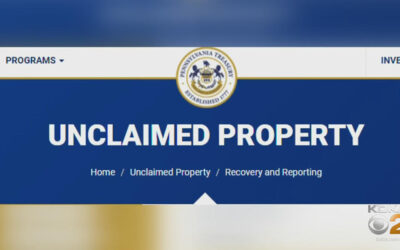Navigating the complex world of real estate transactions can be daunting, especially without the guidance of a knowledgeable professional. A real estate attorney plays a pivotal role in ensuring that property transactions are smooth, legally sound, and in the best interest of their clients. This article provides a comprehensive guide on how to find a real estate attorney for your needs.
Determine Your Needs and Priorities
Before embarking on your search, it’s essential to understand your specific requirements. Are you buying or selling a property? Do you need assistance with a lease agreement or a boundary dispute? Identifying your needs will help you find an attorney who specializes in the relevant area of real estate law.
Read More: When to Hire a Real Estate Attorney: A Comprehensive Guide
Seek Referrals from Trusted Sources
Word of mouth remains one of the most reliable methods of finding a reputable attorney. Ask friends, family, or colleagues who have recently engaged in property transactions for recommendations. Additionally, online lawyer review websites can provide valuable insights from previous clients.
How to Find a Real Estate Attorney: Research Online Resources
In today’s digital age, the internet has become a primary tool for individuals seeking information on a wide range of topics, including legal services. When it comes to finding a real estate attorney, online resources offer a plethora of options, insights, and reviews that can guide your decision-making process. Here’s a deeper dive into how you can effectively use online resources to find the right real estate attorney for your needs:
1. Legal Directories and Websites
- Justia and Avvo: These are comprehensive legal directories that list attorneys by specialty and location. You can view profiles of real estate attorneys, their qualifications, client reviews, and often, their fee structures.
- State Bar Association Websites: Many state bar associations maintain a directory of attorneys licensed in that state. These directories often allow you to search by specialty, ensuring you find attorneys specifically skilled in real estate law.
2. Online Review Platforms
- Google My Business and Yelp: These platforms allow clients to leave reviews for professionals, including attorneys. By reading reviews, you can get a sense of an attorney’s reputation, professionalism, and client satisfaction rate.
- Lawyer-specific Review Sites: Websites like Martindale-Hubbell offer peer and client reviews of attorneys, giving insights into their professional conduct and expertise.
3. Legal Forums and Q&A Platforms
- LegalAdvice and FindLaw: These platforms allow users to ask legal questions and get answers from professionals. By browsing these forums, you can see which attorneys are active, knowledgeable, and helpful to potential clients.
4. Social Media
- LinkedIn: Many attorneys have LinkedIn profiles where they share their qualifications, endorsements from peers, and articles or posts related to their field. This can give you a sense of their expertise and engagement in the real estate law community.
- Facebook and Twitter: Some attorneys or law firms maintain active social media profiles where they share updates, articles, and interact with clients. Observing their online presence can give you insights into their approachability and dedication to client engagement.
5. Blogs and Articles
Many real estate attorneys write blogs or articles to share their knowledge, provide updates on legal changes, or offer insights into common real estate challenges. By reading these, you can gauge an attorney’s expertise and dedication to educating the public.
6. Online Consultation Platforms
Some websites offer online consultations with attorneys. Platforms like Rocket Lawyer or LegalZoom allow you to briefly discuss your issue with an attorney, helping you determine if they’re the right fit before committing to a full consultation.

Evaluate Qualifications and Experience
Choosing the right real estate attorney is a critical decision that can significantly impact the outcome of your property transactions. One of the primary factors to consider when making this choice is the attorney’s qualifications and experience. Here’s a detailed guide on how to thoroughly evaluate these aspects:
1. Educational Background
- Law Degree: Ensure that the attorney has a Juris Doctor (JD) degree from an accredited law school. This degree is a prerequisite for practicing law in most jurisdictions.
- Specialized Training: Some attorneys may have additional training or certifications in real estate law, which can be an added advantage.
2. Bar Admission
- Licensing: It’s essential to verify that the attorney is licensed to practice law in your state. Each state has its own bar association, and attorneys must pass the bar exam to practice legally.
- Good Standing: Check if the attorney is in good standing with the state bar association. This means they have no disciplinary actions or complaints against them.
3. Years of Experience
- General Practice vs. Specialization: While the number of years an attorney has been practicing law is important, it’s equally crucial to determine how many of those years were dedicated to real estate law specifically.
- Track Record: Consider the attorney’s track record in handling real estate cases. Have they dealt with cases similar to yours? What were the outcomes?
4. Areas of Expertise within Real Estate Law
Real estate law is vast, and attorneys might specialize in specific areas such as:
- Residential or commercial transactions
- Landlord-tenant disputes
- Property development and zoning
- Real estate financing
- Title disputes
Identify which area is most relevant to your needs and ensure the attorney has expertise in that domain.
5. Professional Affiliations
- Memberships: Many attorneys are members of professional organizations, such as the American Bar Association’s Real Property, Trust, and Estate Law section or local real estate law associations. Such memberships can indicate an attorney’s commitment to staying updated in their field.
6. Client Testimonials and Case Studies
- Feedback: Client testimonials can provide insights into an attorney’s professionalism, communication skills, and effectiveness. Look for reviews on their website, third-party platforms, or even ask the attorney for references.
- Case Studies: Some attorneys showcase case studies on their websites, highlighting their approach and the results achieved. These can give you a sense of their expertise in action.
7. Continuing Legal Education (CLE)
- Ongoing Learning: Laws and regulations evolve over time. Check if the attorney regularly participates in CLE programs related to real estate law. This indicates their dedication to staying current in their field.

Schedule Consultations
Most attorneys offer free initial consultations. This is an opportunity to gauge their expertise, communication style, and compatibility. Prepare a list of specific questions related to your transaction and observe their responses.
Assess Communication and Compatibility
Effective communication is crucial in any attorney-client relationship. Evaluate how promptly the attorney responds to your queries and whether they can explain complex legal jargon in understandable terms. It’s also essential to ensure that your personalities and working styles mesh well.
Discuss Fees and Payment Structure
Understanding the cost implications is vital. Some attorneys charge an hourly fee, while others might offer a flat fee for specific services. Ensure you’re clear about any additional costs, retainer requirements, and the overall payment structure.
Check References and Reviews
A reputable attorney should be willing to provide references from previous clients. Contact these references to get firsthand feedback. Additionally, online reviews and testimonials can offer further insights into the attorney’s professionalism and expertise.
Make an Informed Decision
After gathering all the necessary information, weigh the pros and cons of each attorney. Consider their qualifications, experience, communication skills, fees, and client feedback. Making an informed decision will ensure that you have the right legal partner by your side.
Conclusion
Finding the right real estate attorney is a crucial step in ensuring a smooth and successful property transaction. By following the steps outlined above, you can confidently identify and choose a reputable lawyer who aligns with your needs and preferences.
People Also Ask
- How do I find a good real estate attorney?
- Start by determining your specific needs, seeking referrals, researching online, evaluating qualifications, and scheduling consultations.
- What factors should I consider when hiring a real estate lawyer?
- Consider their qualifications, experience, communication skills, fees, client feedback, and compatibility.
- How much does hiring a real estate attorney cost?
- Costs can vary based on the attorney’s fee structure, which can be hourly or a flat fee. Always discuss fees upfront to avoid unexpected costs.
- What are the qualities to look for in a real estate attorney?
- Look for expertise in real estate law, effective communication skills, a good track record, and positive client feedback.
Mehedi Miraz is the passionate writer behind RealEstateTracer.com. With a love for writing and a fascination for the world of property, Mehedi has honed his expertise through years of dedicated research. His words breathe life into every aspect of the industry, making complex topics simple and enjoyable to explore. Armed with valuable insights, Mehedi is on a mission to share knowledge, empowering readers to navigate the real estate landscape with confidence.






